Tiger Pride: LGBTQIA+ faculty, staff share their stories
Nine TU faculty, staff colleagues share their passion, pride
By Bethany Pace on June 17, 2022

Storytelling is a meaningful part of the LGBTQIA+ experience and can be used to enhance connectedness, collective care and action.
In honor of Pride Month, members of the LGBTQIA+ community at Towson University, who celebrate Pride year-round in their roles at TU, offered to share their stories and experiences more broadly to affirm others and foster belonging.
The feeling of belonging is a central tenant of Pride Month. M. Paz Galupo, professor of psychology and director of QT-CREW – the Queer-Trans Collective for Research for Equity & Wellness at TU explained, “for LGBTQIA+ individuals, pride is uniquely conceptualized in relation to the consistent societal messages that question our experiences, invalidate our identities, and/or debate our right to exist. So, of course, we may feel pride when we achieve a goal or mark a milestone. However, queer and trans joy often exist in those smaller moments when we drop the pressure to conform, and we lean into expressing ourselves authentically. And sometimes we take pride simply in the recognition that—despite all the societal obstacles—we have found a sense of belonging.”
Pride Month continues through June, and the university’s celebration of Pride this month is directly linked to the TU Strategic Plan’s value for diversity and inclusion.
“These stories are especially important not only for members of the university community navigating their own LGBTQIA+ experiences at TU, but also for fostering understanding and compassion among both allies and other members of the university community who are learning how to be allies,” says Patricia Bradley, vice president of Inclusion and Institutional Equity.
Michael Tristano Jr., Ph.D. (he/him/el)
Assistant Professor, Department of Communication Studies
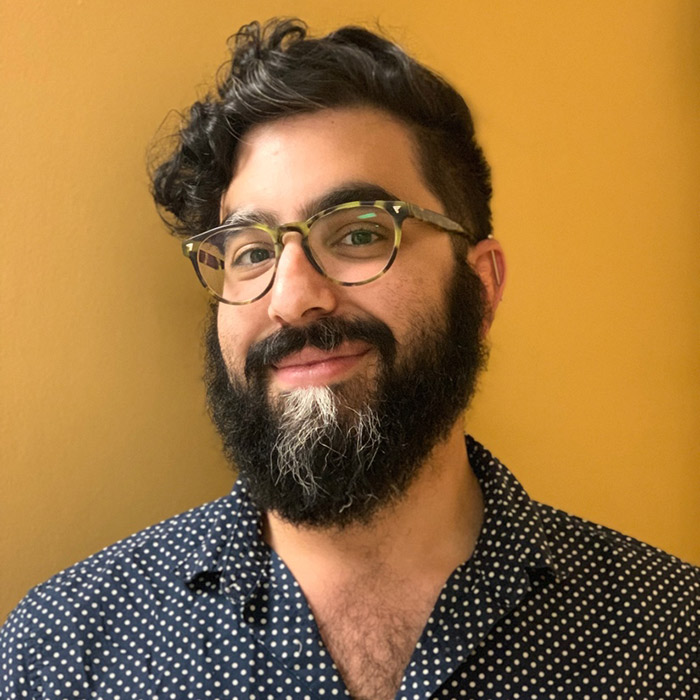
Describe your role at the university. What do you love most about it?
As a full-time faculty member, my job is to teach and research in my particular areas
of expertise: queer intercultural communication, performance studies and queer of
color criticism. What I love most about my job is the multitude of social locations
students occupy and come from.
We learn to work and communicate across our differences (rather than erase them) in the service of imagining and creating a more just and equitable world for all people. My favorite part of my job is helping students understand how intersectional politics are a road to liberation. If we understand that, for example, one person's class struggle is inextricably linked to someone else's struggle with occupying a gender expansive identity, we can imagine a better world for all.
How has your LGBTQIA+ identity informed your work?
My identity as a queer person of color is central to my work. As a mixed-race (Latinx/white) and queer human, I have found great productivity in studying and teaching from the lens of queer of color theory. This body of theory, which drives my scholarship and worldview, allows me to engage with and acknowledge the complicated web of power in our social world; it is never only about a singular issue. Queer of color performance also equips me to theorize and understand how we, as queer people/people of color, can build the world we want to see through our performances of/in community with one another.
What brings you pride?
There is a moment for some students when critical theory clicks. I can see the cogs turning slowly in their mind and suddenly a spark and you see their expression change. What follows may be anger, passion, sadness, determination, confidence, a moment of temporary heartbreak or something different entirely; but always, I remind students that they have the ability to change the world every day with how the choose to behave, to communicate, to be in relation with, and how they advocate. When a student realizes that we can collectively imagine better ways of being, which often starts with unlearning and burning what we have down, I find a sense of hope that propels me forward as an educator, researcher and advocate.
Julie Corson (she/her/hers)
Administrative Assistant II, Department of Accounting
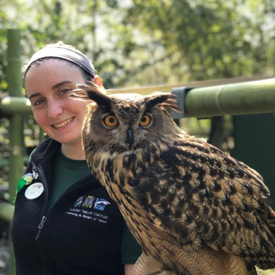
Describe your role at the university. What do you love most about it?
I currently work as the administrative assistant for the Department of Accounting in the College of Business and Economics. Being the primary contact of the accounting department, I am incredibly fortunate to work with students, faculty and staff in all areas of the university, which allows me to assist many students on their academic journey and help them achieve success in a variety of aspects of their lives.
How has your LGBTQIA+ identity informed your work?
It is very important to me that any student who enters my office knows they are accepted and safe to always be their authentic selves. When I was a college student many years ago, I was incredibly fortunate to have supportive faculty and staff around me while I was in the process of coming out, and I had a support system readily available to me as I navigated the early stages of my journey as a young queer person. After many years of being deeply closeted, the support I found at that time in my life was crucial, and I genuinely do not know where I would be today without it. Now that I find myself on the opposite side of the desk, I always want to make sure that students at TU know they are safe and valued, and to offer them the same support and validation that I was fortunate enough to receive when I was a student many years ago.
What brings you pride?
I am proud of the progress that we as a society have made towards being a more accepting and welcoming place. While there is still much work to be done, and many hard-fought battles to come, being able to recognize the progress that has been made, due to the hard work and dedication of the queer elders who came before us, is important to acknowledge and take pride in.
Pride at its core has always been a form of resistance and began thanks to the dedication and willingness to stand up to oppression and fight for the right to exist freely and without fear as our authentic selves. The work of figures like Marsha P. Johnson, and Stormé DeLarverie (two queer BIPOC, who are credited as two of the most influential figures in the initial Stonewall Uprising of 1969, and subsequent gay pride rallies that took place in the years after, eventually creating what is known today as Pride Month), is inspirational to myself and many, and I always want to be thankful and take pride in the work that was done by those who came before me, to give myself and our students the rights we have today. The fight is not over, but we should always take pride in where we came from and who helped us get here.
What does Pride mean to you?
Throughout my life Pride has often been a complicated and difficult concept for me. As a young queer person, I struggled with the concept of taking pride in myself and my identity, as I had dealt with many years of self-repression and internalized homophobia. One of the first real moments of pride I ever experienced was actually at a drag performance of all things. My university’s Graduate Student Association holds an annual drag show by local drag performers in the area every year.
As a first-year student, I was still struggling with coming to terms with my identity and finding self-acceptance. Drag shows by their very nature tend to be flashy and loud, and this performance was the first time I had ever seen anyone in the queer community being themselves so openly without any shame, especially on a stage surrounded by hundreds of people. Being face-to-face with people who were openly queer and expressing themselves and their identity through artistry was a mind opening experience for me and I started bawling during the final number.
Pride can mean many things to many people, but to me it means being your authentic self, without shame, and refusing to be silenced by those who do not accept you. Pride is an act of resistance, and no matter how commercialized it has become as corporations jump on the bandwagon every June, it continues to be an act of resistance as we continue to make our existence known and express our right to be seen, heard and respected. No matter how many years pass, the concept of Pride will always bring me right back to that first eye-opening moment as a young queer person, watching other queer people perform and celebrate themselves and their lives, unashamed, authentic and unafraid.
What makes you proud of your identity?
I am proud as a queer woman to be able to exist openly as who I am. As a youth I spent years afraid to be myself, and it took many years before I could comfortably exist without denying an integral part of who I am. Rejection and shame are all too familiar feelings for queer people and learning to overcome the shame that we are taught to feel by simply existing is a challenge every one of us faces. Looking at my life now, compared to where I began, I take great pride in the progress that I have made as an individual and the self-love and acceptance I have worked hard to cultivate and grow. I exist today as I am, proudly and with great joy.
Anything else you’d like to add?
Always choose kindness when you can, open your heart and mind to learn from the experiences of others, and always strive to create an inclusive and accepting environment for those around you, wherever life takes you.
M. Paz Galupo, Ph.D. (she/they)
Professor of Psychology and Director of QT-crew—the queer-trans collective for research
for equity and wellness
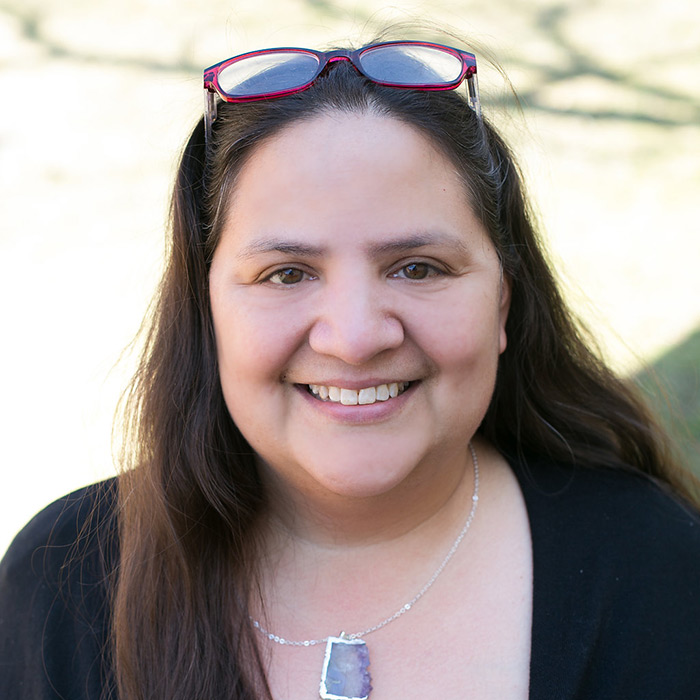
Describe your role at the university.
In addition to serving as professor of psychology and director of QT-CREW – the Queer-Trans Collective for Research for Equity & Wellness at TU, I currently hold a Wilson H. Elkins Professorship from the University System of Maryland that supports my research on the unique legal and cultural factors that impact the health care experiences of transgender and nonbinary Marylanders. I also recently received an NIMH grant for a collaborative project with Dr. Loren Bauerband (assistant professor, University of Missouri and alum of our experimental psychology program at TU) to develop a measure of gender dysphoria that better reflects the lived experience of trans and nonbinary individuals.
What do you love most about it?
I really love working with research students and I have been fortunate to have had so many great ones at TU! All of my research is conducted as a training exercise with undergraduate and graduate students. There is something really amazing about learning alongside my students, helping them develop their interests into feasible research projects, and taking them through the entire research process—from study design to publication.
How has your LGBTQIA+ identity informed your work?
Our lab conducts research that is by and for queer and trans folx. By design, our work is grounded in the needs of communities that have been historically excluded in academic research and society at large. Being part of the community that I research, I feel a real sense of urgency in our work and a huge responsibility to get it right.
How does your research directly impact the LGBTQIA+ community?
In recent years, there has been a sharp rise in the number of anti-LGBTQ bills introduced in the US (41 in 2018 compared to over 230 in the first half of 2022). The majority of these bills specifically target trans Americans. Doing queer/trans research, I have found that we often have to pivot quickly—shifting our research focus to document and address the harm as it occurs in real time, and to develop solutions that can positively impact the lives and well-being of LGBTQIA+ individuals.
Taylor Sevik (he/him/his)
Coordinator of Fraternity and Sorority Life
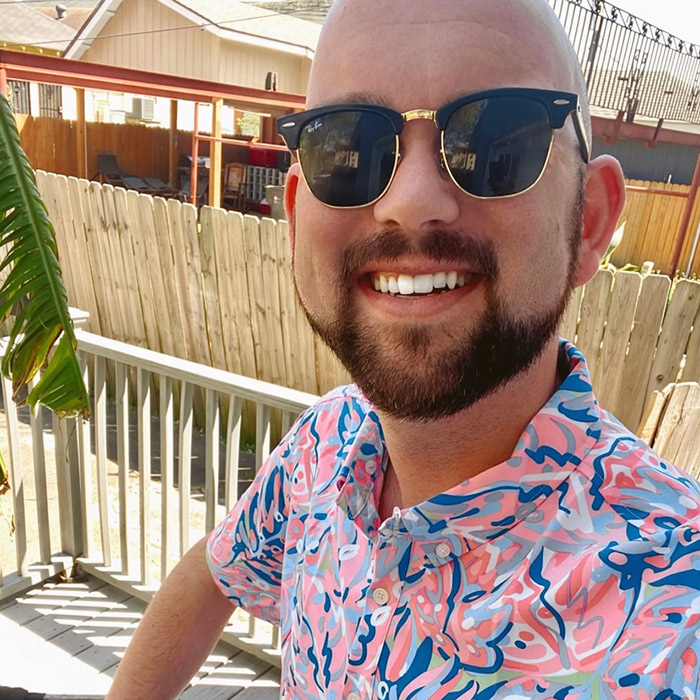
Describe your role at the university. What do you love most about it?
I am the primary advisor for the Panhellenic Association (PHA) and the Multicultural Greek Council (MGC). I love that I get the chance to work with a large community of students who all have various identities and backgrounds. After the [COVID-19] pandemic, the one thing we know for certain is that students are looking for connection and being in a fraternity/sorority provides that opportunity.
How has your LGBTQIA+ identity informed your work?
Being gay is just one component of the many facets to my identity and although it does not define me, I am proud to be a gay man. Within my role I do my best to live my truth so that others know that my office is a safe space if they ever need someone to talk to. Since coming out just over a year-and-a-half ago, I have had numerous students come share their stories and challenges with me. Most of them were not looking for anything besides someone listening to them and most importantly hearing and seeing them.
What does Pride mean to you?
For me, Pride simply means showing up each day as my authentic self. For so long I was living with unbearable shame that horrendously impacted my mental health. I am so proud of my identity because I know the amount of work it took to get here. With the help of therapy, mindfulness, self-care and my loved ones, I was able to let go of the fear that I would not be accepted because I had finally accepted and loved myself.
Kalima Young, Ph.D. (she/her/hers)
Assistant Professor, Department of Electronic Media and Film

Describe your role at the university. What do you love most about it?
As full-time faculty, I have the opportunity to help students become visual storytellers
as well as critical consumers/producers of media content. I truly love the process
of helping students bring their stories to fruition and also working in a department
where my love for filmmaking and critical media scholarship is equally encouraged.
How has your LGBTQIA+ identity informed your work?
My identity as a Black womanist lesbian is a critical lens that shapes how I see the world and the kinds of visual stories I prefer to tell. I am always seeking opportunities to validate the reality of those who are relegated to the margins.
What brings you pride?
Being a part of the LGBTQIA+ community means being a part of a long-time, ongoing and ever-evolving push to create an expansive and more just world. I take immense pride in the history of that struggle and the way we are always seeking ways to grow our understanding of different lived experiences.
Zach Runge (he/him/his)
Program specialist and adjunct professor, Department of communication studies
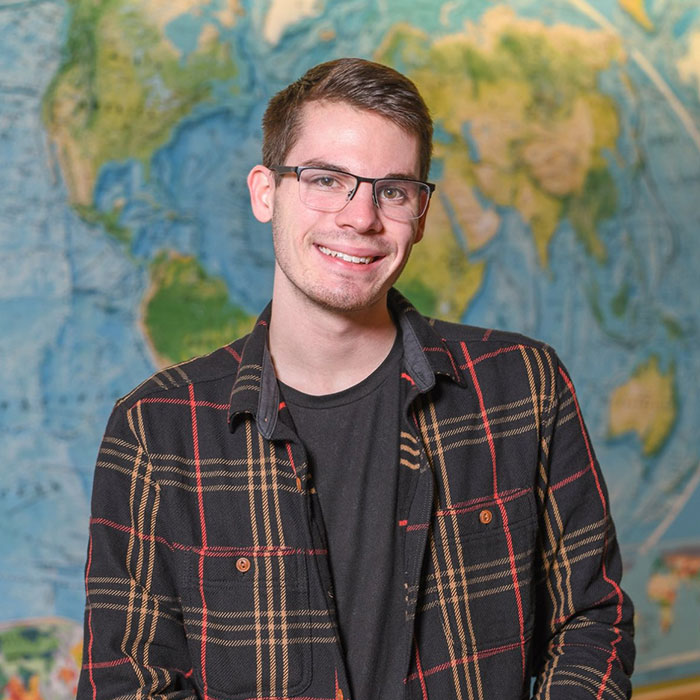
Describe your role at the university. What do you love most about it?
I am a program specialist in the Department of Communication Studies, where I was previously a student and graduated in 2019. I wear many hats in my role, mainly serving as an academic advisor to students as well as handling the external marketing/outreach, building course schedules and tracking enrollment/retention. The most rewarding part of my job is being able to connect with students from a variety of backgrounds and help them stay on track to be successful both within the communication studies program and beyond. I love being able to meet with students to hear their stories and goals and watch them become accomplished graduates.
How has your LGBTQIA+ identity informed your work?
Within the Department of Communication Studies, there is so much emphasis on identity and culture as well as advocacy with some courses being centered on topics like gender, sexual communication, trans media and social protests. I think this is really nice, because in my role I am able to continuously explore and participate in these important topics and bring my own perspective and experiences to the table when talking with students and colleagues. As a cis, white man I must acknowledge the privileges I am given even though I am gay and part of the LGBTQIA+ community. Being able to partake in diverse discussions on intersectionality and making an effort to be aware of crucial issues taking place in the larger LGBTQIA+ community allows me to reflect and build connections in my work.
What brings you pride/what does Pride mean to you?
To me, pride means being aware of the fact you may be “different” from society’s heteronormative ideals and loving yourself for it. It is about being confident in who you are and allowing that to show no matter how others may react. But pride is also about being informed and continuing to advocate for the entire community. I am constantly looking for ways to be more active and vocal in the LGBTQIA+ community on TU’s campus so that I can continue to learn and grow alongside others.
Mary Rosekrans (she/her/hers)
Academic Advisor and Adjunct Professor
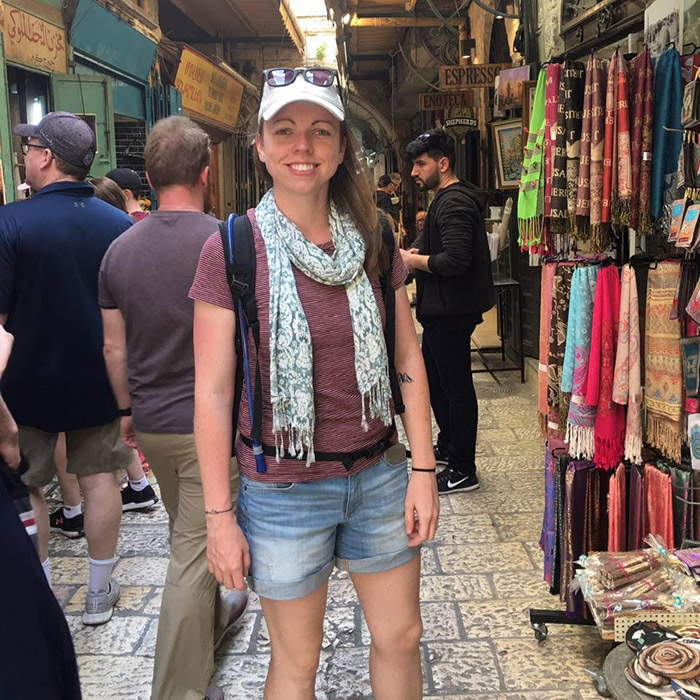
Describe your role at the university. What do you love most about it?
As a full-time academic advisor, I work with a wide variety of students including first-year students, undecided students, students on academic warning and probation and more. I also teach part-time in the psychology department. My favorite thing about my roles at Towson is truly connecting with students. I enjoy helping them navigate a fun yet often challenging time in their lives, helping guide them to clarity and confidence in their academic journey, and witnessing their growth.
How has your LGBTQIA+ identity informed your work?
My identity is who I am to my core, so it impacts everything I do in my life, including
my work. I feel thankful to work at a university who celebrates the LGBTQIA+ community.
I work in a small office where I can also be myself and be proud of who I am as a
lesbian woman. I bring my authentic self to all my interactions with staff and colleagues
and hope that encourages them to do the same. Life is too short to hide who you are.
I am also inspired by all the diverse students across the TU community that are showing
up, being proud of who they are and advocating for inclusion and equity.
What does Pride mean to you?
To me, Pride means being proud of who you are and sharing that with the world. It means not being afraid to speak up when you see discrimination or inequity. It means celebrating the present, honoring the past and those who have fought long and hard before us, and challenging the future to be even better than today. Pride means coming together as a community, from all walks of life and celebrating each other and not being ashamed.
Timm Baldwin (he/him/his)
Associate Vice President, Marketing and Brand Strategy

Describe your role at the university. What do you love most about it?
In my role I have the privilege of leading TU’s talented university marketing team. We work to craft the message, tone and placement of advertising materials strategically crafted to reach the university’s many unique audiences. We enjoy collaborating with departments across campus to create and deploy marketing plans in support of enrollment, athletics, fundraising and more.
The best part of this work is supporting a meaningful mission. It feels immensely gratifying to be part of the team helping define the identity, voice and energy for an impactful institution that is giving students opportunities to change lives, including their own. Marketing can sometimes feel salesy and inauthentic, but only when advertising promises too much. It’s great to be part of an organization that is really delivering.
How has your LGBTQIA+ identity informed your work?
Up until a few years ago, my identity was mostly hidden. Being part of TU and an inclusive community helped encourage me to be more visible and accepting of myself. So, in many ways the university has inspired my personal journey as much as my professional one.
Being part of the LGBTQIA+ community influences every part of the marketing work I do. Telling TU’s story of inclusivity and its commitment to equity is informed by my own journey to feel included. Speaking to large audiences through copy and visuals comes with a responsibility to be thoughtful about each unique member of that audience. My identity helps me take that responsibility more seriously and to work on behalf of messaging that really speaks to this place and how students, faculty and staff can be themselves in it.
What brings you pride?
As a father, my kids are a tremendous source of pride. Before becoming a parent, I believed who children became was more nurture than nature. I’ve learned that is not the case at all. They’re each unique and they were distinctly themselves from an early age. It’s such a gift to see them grow and become more of who they are. They’ve embraced me as a gay dad, and they’ve taught me so much about what acceptance really means. I’m in awe of their generation and their willingness to welcome differences.
Mike Zebrowski, Psy.D. (he/him/his)
Coordinator of Services for LGBTQIA+ Students and Staff Psychologist, TU Counseling Center
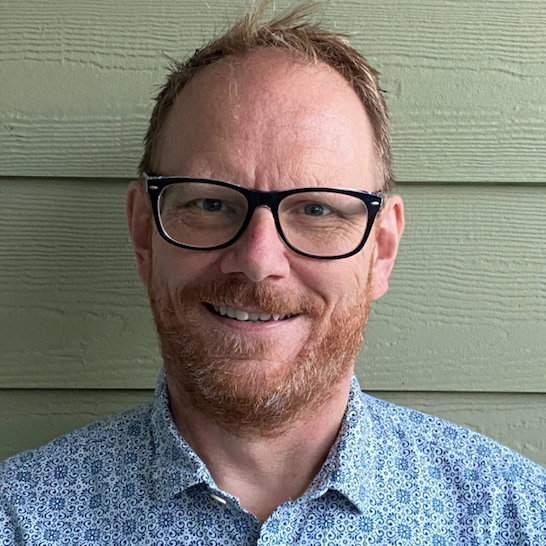
Describe your role at the university. What do you love most about it?
I’m a staff psychologist and coordinator of services for LGBTQIA+ students. I feel very fortunate that I was given this area to develop for the Towson University Counseling Center. I love that I get to meet many queer-identified students and be part of their time here at TU. At the TUCC we were able to create a support group for two spirit, trans and nonbinary students, which was a real joy to co-lead.
How has your LGBTQIA+ identity informed your work?
I feel my LGBTQIA+ identity is everything to the work I do at TU. I feel very committed to helping other queer students, most likely seeing myself in them and my three kids who are all under the queer umbrella and all out of college now. I hope that when queer students meet me, they feel understood and deeply cared for, which is truly how I feel.
What brings you pride?
I was just at my ex-wife’s wedding—she is also queer identified—with my husband and adult children. We took a family picture of all of us and I feel immense pride knowing that we made it and created an amazing queer family.